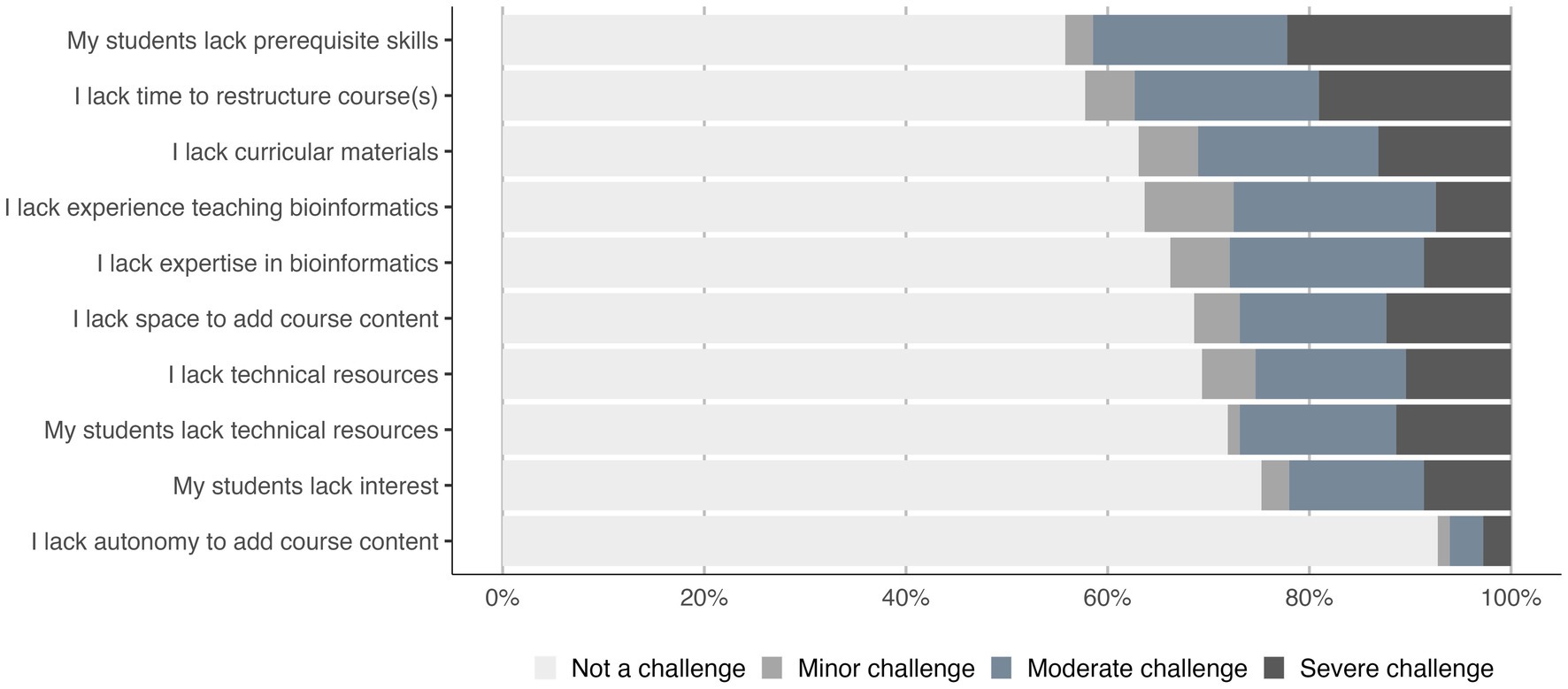8 Easy Facts About Bioinformatics Tutor Explained
8 Easy Facts About Bioinformatics Tutor Explained
Blog Article
Facts About Bioinformatics Tutor Uncovered
Table of ContentsSome Known Details About Bioinformatics Tutor Indicators on Bioinformatics Tutor You Should KnowThe Buzz on Bioinformatics TutorUnknown Facts About Bioinformatics TutorBioinformatics Tutor for Dummies
Of the total individuals included in the training, 80% were pupils from public college establishments, while the continuing to be 20% came from exclusive organizations. To qualify for a certification of involvement, pupils were needed to go to at the very least 90% of the complete training hours. As an outcome of this requirement, an excellent 95% of the individuals effectively obtained their certificates, having not just met the minimum presence criteria but likewise completed all appointed activities throughout the training.
During the elevation of the COVID-19 pandemic, specifically in between June and August 2020, the job group was charged with organizing specialized training in bioinformatics. This training was especially focused on trainees from the research study group Nucleus for Study in Applied Computing at the Federal College of Pará (UFRA) The adjustment to remote discovering systems due to the pandemic produced a possibility to explore brand-new training techniques and electronic tools that improved both reach and efficiency.
This course was designed to offer an easily accessible yet comprehensive overview of Artificial Knowledge strategies, especially as applied in bioinformatics (Bioinformatics Tutor). This online layout allowed participation from trainees throughout Brazil, many of whom could not have had the possibility to attend in-person sessions.
The 7-Second Trick For Bioinformatics Tutor
Roughly 50% of the total training hours were committed to practical activities where pupils constructed intelligent versions and applications in a variety of scientific domains, including genes, molecular biology, and ecological information evaluation. These platforms made it possible for trainees to involve in real-time information manipulation, version training, and formula trial and error.
Sixty of them were affiliated with numerous greater education and learning organizations in the state of Pará, while the continuing to be twenty came from organizations found in 5 other Brazilian states. By presenting Artificial Intelligence in a appropriate and functional context, the campaign served to connect the space in between theory and real-world application, giving trainees with a solid foundation for future study or employment in the field.
The training campaign formed part of a more comprehensive scholastic outreach effort referred to as the Bioinformatics on the Road job. This job has, for many years, presented loads of students to the globe of bioinformatics and computational biology. The occasions held under this umbrella initiative have actually happened across numerous regions and years, as summed up in Table 1 (Listing of events, places, years, and overall numbers of pupils and teachers)
Among one of the most impressive outcomes of the Bioinformatics when traveling effort has been its payment to the development of decentralized study groups. Several of these groups, initially combined by their engagement in training occasions, have given that gone on to create independent scientific research study in cooperation with neighborhood scholastic institutions. The training not only cultivated scientific reasoning within the context of bioinformatics however also sparked collective partnerships that expanded past the training environment. These partnerships have actually brought about enhanced local clinical productivity and contributed meaningfully to the growth of the broader bioinformatics neighborhood in Brazil.
More About Bioinformatics Tutor
The job itself was conceptualized and arranged by MB and RR, who looked after the preparation and execution of each step. Lectures were supplied by a multidisciplinary team consisting of megabytes, FA, EF, KP, JS, DM, SN, LP, LG, RR, ih, and air conditioning. The exact same group, leaving out IH and RR, likewise served as tutors for the useful training components. Funding for the job was given via the give 88887.200562/ 2018-00 from CAPES. The writers prolong their thankfulness to everyone that contributed to the understanding of this job, whether directly or indirectly, considering that its inception.
The Federal College of Pará's Workplace of Research (PROPESP/UFPA) also offered monetary assistance, particularly for the manufacturing of the last manuscript. The writers state no financial or commercial disputes of interest that could have influenced the research study. Moreover, view it all analyses and point of views revealed in this short article are solely those of the writers and do not always reflect those of their respective institutions, the publisher, editors, or customers associated with the publication process.

Some Ideas on Bioinformatics Tutor You Need To Know
From an instructional viewpoint, the teaching technique made use of in the training was intentionally interactive. Courses were carried out in a way that encouraged student engagement and discussion, surpassing rote memorization to explore just how ideas are created, used in life, and examined in academic setups. The educational philosophy concentrated on nurturing both strong and battling students, giving individualized assistance, and structure self-confidence via continual mentorship and patience.

Each team, including approximately 36 individuals, was sustained by 3 advisors-- a lot of whom were postdoctoral scientists with customized know-how. These mentors not just helped design the team tasks however likewise promoted their execution, making certain that each research study concern was both pertinent and suitably challenging. The goal was to give a biologically reasonable context that participants can discover via open-ended objectives and accessibility to curated datasets.
For added insights into the method and outcomes of this project-based understanding approach, visitors are routed to S1 Text, which includes comprehensive summaries of the instructional structure, analysis approaches, and job motifs used in the training sessions.
Excitement About Bioinformatics Tutor
Of the total individuals included in the training, 80% were trainees from public higher education and learning institutions, while the staying 20% came from exclusive institutions. To qualify for a certification of involvement, students were needed to participate in at least 90% of the overall training hours. Notably, beyond the trainees who enrolled in the training sessions, 7 skilled trainers participated in delivering the programs, while three specialized research study teachers coordinated the total training process. Around 50% of the complete description training hours were committed to sensible tasks where pupils developed smart models and applications in an array of clinical domain names, consisting of genes, molecular biology, and environmental data analysis. The training not just cultivated scientific reasoning within the context of bioinformatics yet also sparked collaborative connections that prolonged beyond the training setting.
Report this page